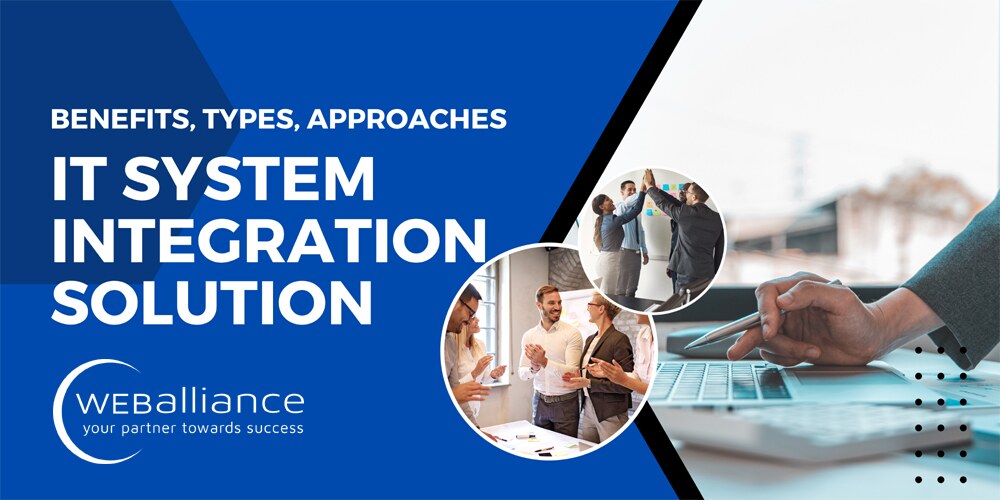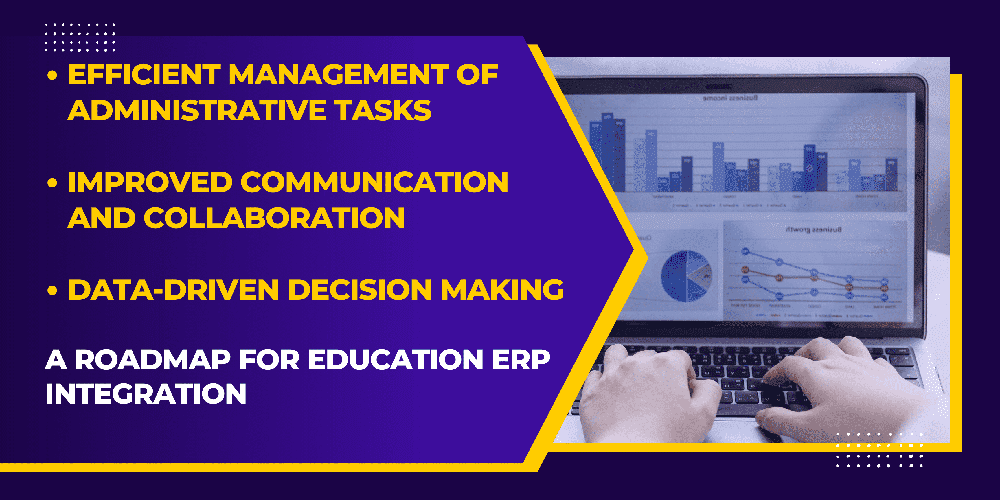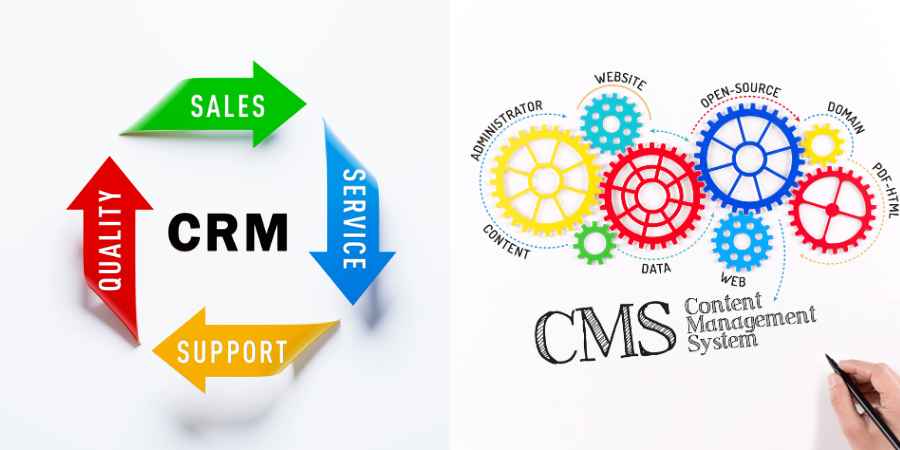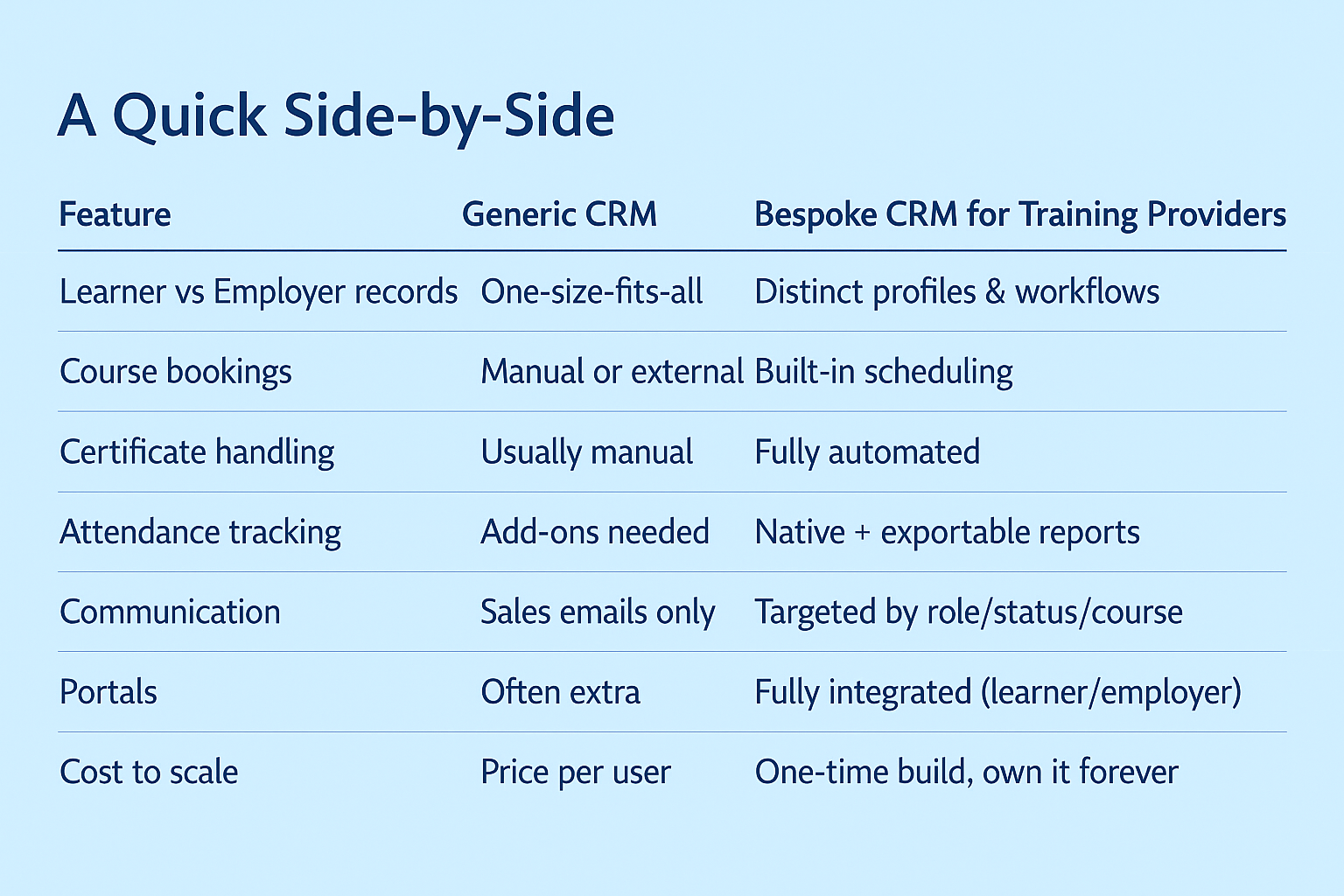Elevating Training Provider Efficiency with Customised Software Solutions

What we’ve learned about making training admin a lot less painful
Running a training company isn’t easy. You’re not just delivering courses — you’re juggling admin, timetables, learners, employers, tutors, compliance reports, funding paperwork, and about ten other things at once.
If you’ve ever thought, “There has to be a better way to manage all this,” you’re right.
And that’s where a tailor-made software can make a serious difference.
But I’m not talking about off-the-shelf system that were built for sales teams and then bent to fit your business. I’m talking about something made for how you actually work, day in and day out.
So what does that look like in the real world?
Let’s start with this:
📉 The “Before” Picture
Here’s what we often see when we first speak to a training provider:
-
Multiple spreadsheets for tracking learners
-
Google Docs or Dropbox folders full of certificates
-
Tutors emailing in timesheets manually
-
Managers trying to pull attendance reports together the night before an audit
-
Enquiries getting lost in inboxes
-
Duplicate learner records with half-filled data
Sound familiar?
Now imagine replacing all of that with one system.
📈 The “After” Picture
A good custom software system can bring together everything in one place — without forcing you to change how your business works.
We’ve helped providers set up systems where you can:
✅ Manage employer and learner records separately
✅ Book tutors based on availability
✅ Trigger enrolment emails and reminders automatically
✅ Log attendance with a few clicks
✅ Generate certificates the moment someone passes
✅ Run reports for funders or compliance bodies without touching Excel
✅ Give learners or employers access to their own portal
Not bad, right?
Why Generic software Don’t Work for Training Providers
Here’s the thing: most systems are designed for tracking sales deals. That’s fine if you’re selling software. It’s not fine if you’re managing 30 learners from one employer across five different courses with varying units and certificates.
That’s why we usually recommend building a software that reflects the structure of your business — rather than trying to force-fit your business into someone else’s software.
🧩 Key Software Features That Actually Help Training Providers
Let’s talk about what matters — not fancy dashboards, but the stuff that actually saves you time and stress.
1. Enrolment Management
No more emailing PDFs or chasing signatures.
Set up online forms → auto-sync to learner records → email confirmation. Simple.
2. Certificate Automation
Complete a course? software checks attendance + grades → auto-generates a certificate → emails it.
Saves hours. And looks professional.
3. Attendance Tracking & Compliance
Tutors take registers on the system.
Admin gets real-time data.
Reports are ready for anyone who asks — OFSTED, funders, clients. You’re always audit-ready.
4. Employer Reporting
Want to show an HR manager how their team’s progressing?
Your system can send out monthly reports automatically.
It’s a win-win: they stay informed, you stay top-of-mind.
5. Tutor Scheduling
See who’s available.
Assign by course type, location, or subject.
Avoid double-bookings. Done.
Real Talk: What Makes These Projects Work
We’ve seen a few things over the years that really make the difference:
-
You need to involve your team — not just the MD or IT
-
Keep the first version of your software simple. Get adoption first, then layer in features
-
Clean your data before you migrate — it’s worth every minute
-
Have someone inside the business who “owns” the software (not just the supplier)
-
Don’t chase features. Chase time savings.
Final Thought
If you're a training provider that’s tired of stitching together five different systems — or worse, still living in spreadsheet land — a custom software workflow can genuinely change your life.
The best systems don’t just store information.
They reduce admin, improve accuracy, and let your team focus on delivering value — not fighting with tools.
At Web Alliance, we don’t sell templates. We sit down, understand your process, and build you something that actually works.
Not “software as a product.” Custom software as a solution to your actual day-to-day problems.
FAQs
Q. We’re already using a Customer Relationship Management — why would we need a bespoke one?
Q. Will a custom-made workflow really save us time, or just add more complexity?
Q. Can we start small and add more features later?
Q. What about compliance and reports — will this help with that too?
Q. How long does a custom system project like this actually take?
Related Blogs

IT System Integration Solution: Benefits, Types, Approaches
The efficiency, productivity, delivery, and profitability …

Why Schools & Educational Institutions Need Bespoke ERP Software Solution
Enterprise Resource Planning (ERP) software is a business-…

CRM vs CMS How are they different and how to integrate them
Having a fancy and responsive website is a must to have a …



